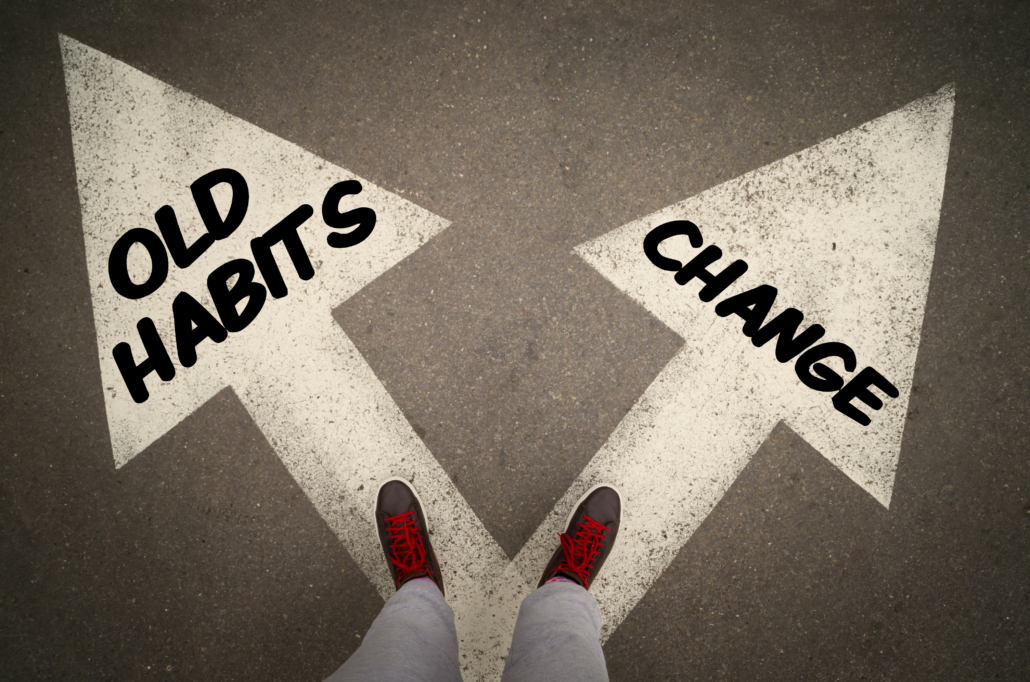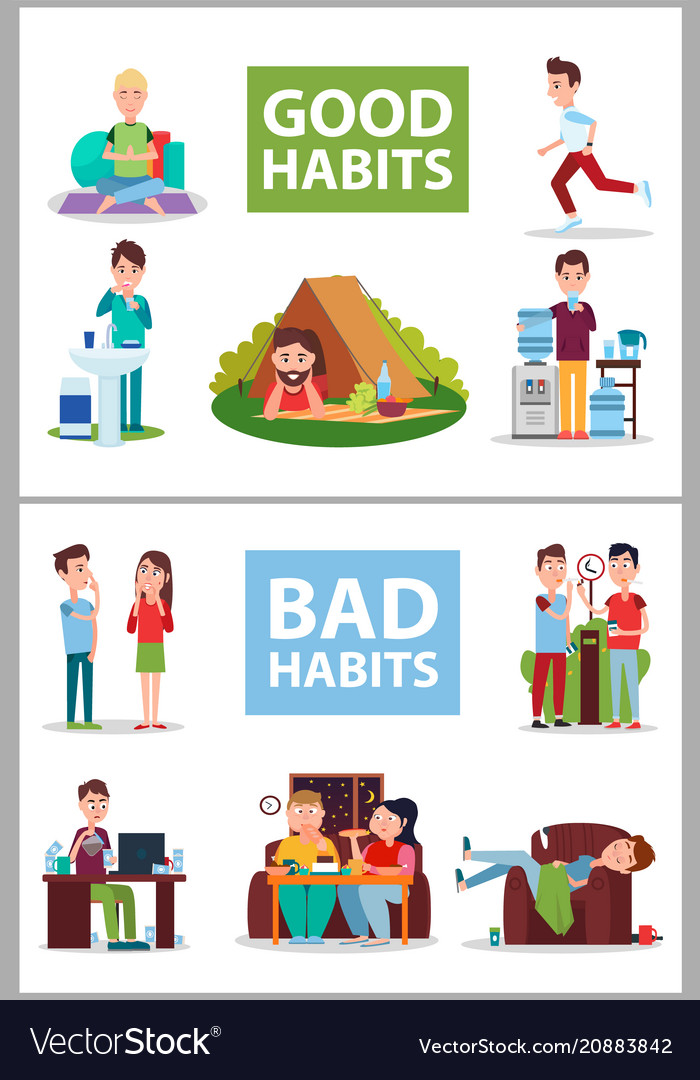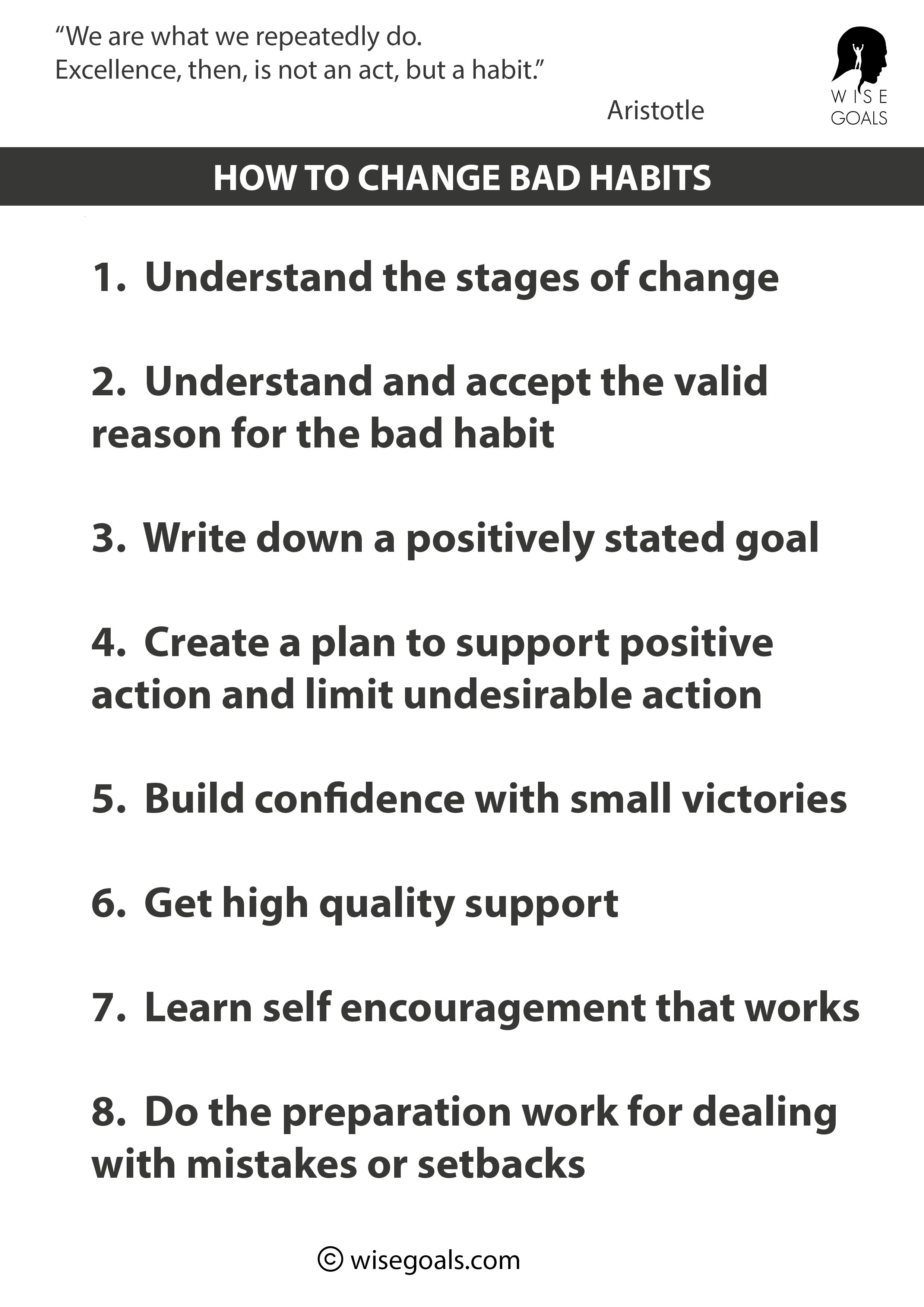How To Change A Bad Habit To A Good Habit

The start of a new year often ignites a flurry of resolutions, a collective desire to shed undesirable habits and cultivate healthier ones. Yet, the road to transformation is rarely smooth, often littered with abandoned gym memberships and half-finished self-help books. The question isn't whether we want to change, but rather, how we can sustainably rewire our behaviors.
This article explores the science-backed strategies for breaking bad habits and establishing positive routines. It delves into understanding the habit loop, implementing effective replacement techniques, and building an environment that supports lasting change. We will look at various researched strategies to help you get to that better place.
Understanding the Habit Loop
At the core of every habit, good or bad, lies the habit loop, a neurological process described by Charles Duhigg in his book "The Power of Habit." This loop consists of three key elements: cue, routine, and reward.
The cue is the trigger that initiates the behavior, such as a specific time of day, a location, or an emotional state. The routine is the actual behavior itself, which could be anything from checking social media to going for a run. The reward is the positive reinforcement that reinforces the behavior, making it more likely to be repeated in the future.
To change a bad habit, you must first identify each component of its habit loop. Once you understand the cue, routine, and reward, you can begin to strategically intervene and disrupt the cycle.
Identifying Your Triggers
The first step in breaking a bad habit is to become acutely aware of the cues that trigger it. This often involves careful self-monitoring and journaling. Ask yourself: What were you doing, thinking, or feeling right before you engaged in the undesirable behavior?
According to research from the American Psychological Association (APA), identifying and understanding your triggers is a crucial element in behavioral modification. The APA emphasizes the importance of recognizing the specific circumstances that lead to unwanted behaviors.
Replacing the Routine
Instead of simply trying to suppress a bad habit, which can be incredibly difficult, a more effective approach is to replace it with a healthier alternative. If your cue is feeling stressed at work, instead of reaching for a sugary snack, try going for a short walk or practicing a quick mindfulness exercise.
This strategy aligns with the principles of cognitive behavioral therapy (CBT), which focuses on modifying thought patterns and behaviors. By consciously choosing a different routine in response to the same cue, you can gradually rewire your brain and break the association between the trigger and the unwanted behavior.
Building a Supportive Environment
Your environment plays a significant role in shaping your habits. Creating a supportive environment can make it easier to stick to your desired routines and avoid triggers for bad habits. Remove temptations from your surroundings.
If you're trying to eat healthier, declutter your pantry of processed foods and stock up on nutritious options. If you want to exercise more, lay out your workout clothes the night before and make sure your gym bag is packed.
The Power of Accountability
Having an accountability partner can significantly increase your chances of success. Share your goals with a friend, family member, or therapist who can provide support and encouragement. Check in regularly with your accountability partner to discuss your progress, challenges, and setbacks.
Research indicates that people who have social support are more likely to adhere to their goals and experience positive outcomes. An accountability partner provides a sense of responsibility and motivation, helping you stay on track even when you feel tempted to revert to old habits.
The Importance of Patience and Self-Compassion
Changing habits takes time and effort. Don't get discouraged if you slip up or experience setbacks. Remember that everyone makes mistakes, and it's important to treat yourself with kindness and compassion.
The key is to learn from your mistakes, adjust your approach, and keep moving forward. Consistency, not perfection, is the ultimate goal. The National Institutes of Health (NIH) emphasize the importance of setting realistic goals and celebrating small victories along the way.
Focus on progress, not perfection. Acknowledge your accomplishments and reward yourself for staying committed to your goals, even if you encounter obstacles along the way. Embrace the journey, understand that it's not always a straight line and learn to adapt along the way.
Looking Ahead
Changing bad habits to good habits is a marathon, not a sprint. By understanding the science behind habit formation, implementing effective replacement strategies, building a supportive environment, and practicing patience and self-compassion, you can create lasting change in your life.
Embrace the process of self-improvement. It is not about changing who you are, but evolving into the best version of yourself.


















